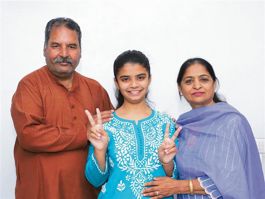
Swati Rai
The realisation that not everyone will communicate with you with the same clarity, empathy and preciseness that you may display in seeking answers, is the key to knowing the importance of asking questions correctly. Not being afraid of asking questions, especially when a hierarchy of overt or covert power equations come into play, can go a long way in enhancing your professional image. Here’s how you can negotiate and self regulate this course of asking questions:
Thumb rules
Familiarise yourself with the difference between asking a question, seeking help and clarifying a doubt and word your question appropriately. Shoot a direct query, rather than a rambling harangue that would help you lose its audience. Stringing the words of the query right, will help you get your point across in a succinct manner. Know what you wish to ask and why. Sometimes giving a justification for the question might just make you sound confident and astute. The fear of appearing inquisitive at a conference where no one is asking questions, is better than being a foot-in-the-mouth know-it-all. So speak up, and know what the protocol of approaching a query is in your current context.
Mind your language
Polite use of cautious modal verbs such as ‘Could’ may be used to indicate studied tentativeness in asking questions, especially to a senior. More often than not, a presenter at a conference will mention the stage at which you can ask questions and park the others for a discussion later. If not sure, no harm in asking confidently, the time for questions rather than sitting tongue tied or worse, leaving burning essential questions, hanging at the tip of your tongue.
Ensure that your question is brief and to the point, not a repeat of what has already been asked, insightful and relatable to the theme of the discussion. A contentious point may be broached, however, it should be done cautiously, with the use of indirect questions. It is better to ask, “I was wondering if you could throw some light on the open door policy in the organisation?”, than ask without a thoughtful preamble, such as in, “Comment on the open door policy of the organsiation.”
Interview time
Asking questions in an interview is not only for the interviewer, the interviewee too, has the right, time and space to seek clarifications from the board sitting across the table. Most times, the interviewer throws the ball in the candidate’s court by seeking queries that the candidate may have. At this point, ask questions that you had in mind or had prepared earlier on to prevent nervous fogging of the mind and losing data.
Avoid a duplication of questions already answered in the course of the interview. Appear confident and seek clarification to an average of two-three queries depending upon the facilitation mode and the paucity or availability of time.
Queries that you have, could also be similar to the one’s your colleagues harbor. Therefore, asking them, will help allay their concerns too.
Asking the right questions at an appropriately at opportune times will also help you save time as against asking those that run counter to the company’s interests and eat away precious (wo)man-minutes by adding to the confusion than clarity.
The where, when & how
Most organisations have a communication pattern laid out, especially when it comes to asking questions to visitors, colleagues and seniors. This is done sometimes as an SOP and at others as an email circulated to everyone before a visit, on the protocol of asking questions to the visiting dignitary. Within the ambit of this behavioural mandate, one can confidently seek a genuine clarification or ask a question as the case maybe. Avoid confusing a comment with a question. Rather than giving your own reading of the situation first, wait for the expert or the speaker to answer your query, then respond appropriately. Avoid trying to read the mind of the speaker and ask closed, 'Yes' or 'No' questions, Instead, seek answers to open ended queries that usually belong to the 'Wh' family of questions.



























